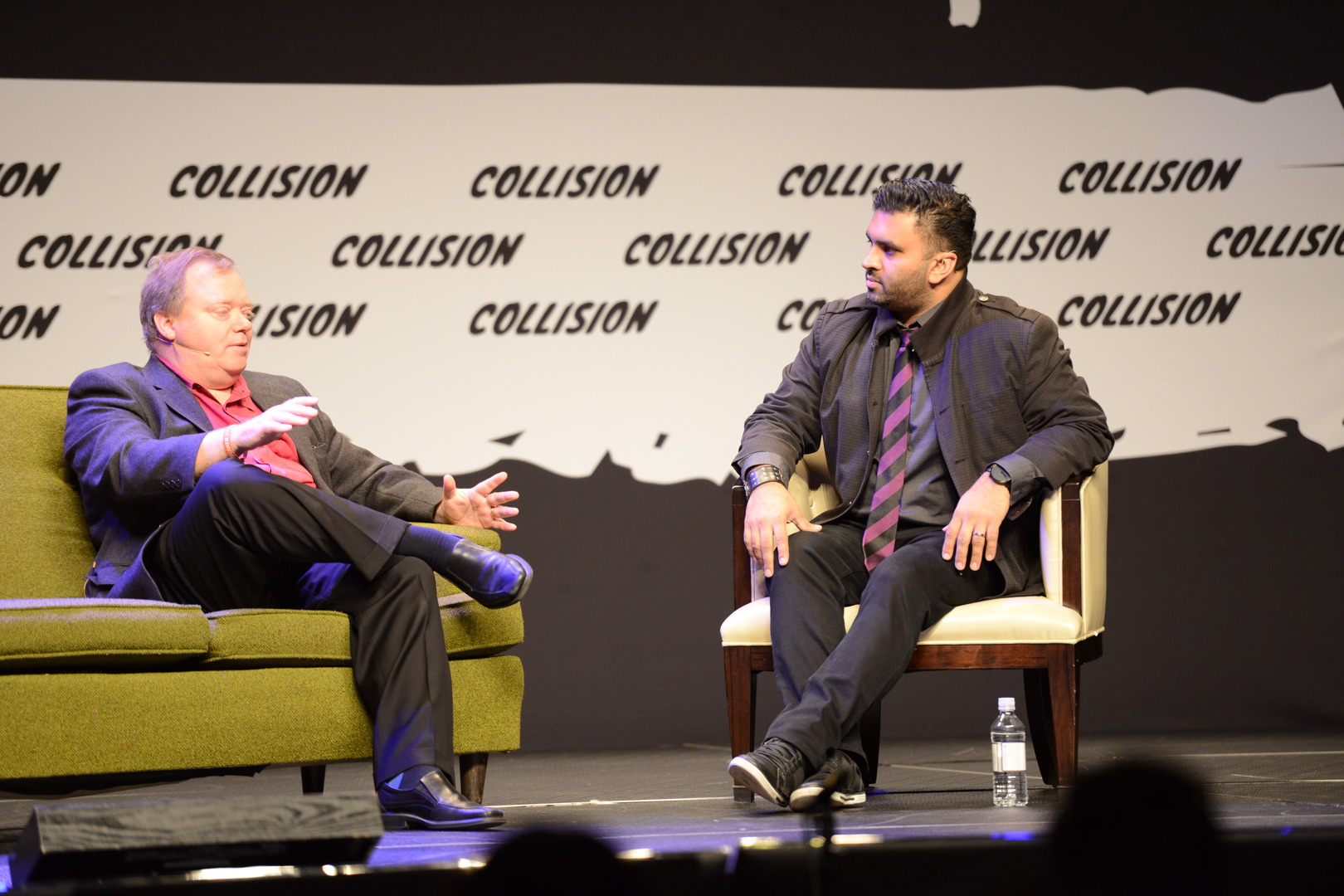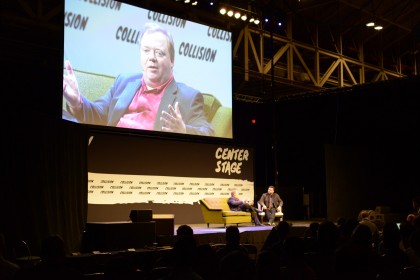Roku opens up about licensing, its vision for TV, and competing with Google
TV's future is still forming

Roku CEO Anthony Wood is refreshingly candid. In a one-on-one chat at Collision Conference this morning, he spoke with Verge Editor-in-Chief Nilay Patel on his vision for the future of television. Interestingly, the company's best-known business only makes up around half of its profits. Though the Streaming Stick is what sells the brand, it's the company's embedded software that has helped it scale.
According to Wood, every TV not manufactured by Samsung will eventually be "powered by Roku or Android TV." That's a bold statement, but I get the feeling there's a lot of truth behind it. In my interactions with television manufacturers, I've been given the impression that they aren't wild about investing millions to craft an OS of their own. Indeed, that's why licensing works. You look around at the marketplace and pay someone else to use the product that they've already mastered.
That led into yet another intriguing point: Wood believes that Google (yes, Google) is its main competitor. One may assume that Apple (Apple TV), Amazon (Fire TV), or any other streaming stick would be seen as the primary target, but that's not the case. Some 5.5 billion hours of video were streamed over Roku products last year, which is twice what Apple served up and triple what Google and Amazon did.
Because Roku views the licensing business as its biggest potential for driving revenue, it wants to outmaneuver Google's Android TV. If it wins the market share war in terms of powering Smart TVs, it'll have a solid chance at being around for a very long time.
In closing, he mentioned that advertising on traditional TV was "still in the stone ages," noting that targeting was all but impossible. Roku, of course, allows its advertising partners to key in on extremely specific demographics, ensuring that their ad buys are only blasted to a predetermined audience.

I also found it surprising to hear that only around half of Roku's customers have a cable subscription, as a giant swath of what's available on Roku is only useable if you have a pay-TV login. That's changing as more networks decouple and offer standalone subscriptions like HBO Now, but it's a slow moving beast at best.
Perhaps most striking about Wood's conversation was this: no one agrees on the future of television. I recently spent a week inside of Ericsson's UK headquarters, where I was informed about a multitude of opinions, stances, and agendas from all across the industry. It feels as if an industry-wide mediation needs to occur if we're ever to move forward in a unified fashion, but sadly, I don't get the impression that peace talks are anywhere close to happening.
Sign up for breaking news, reviews, opinion, top tech deals, and more.
